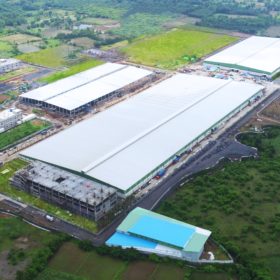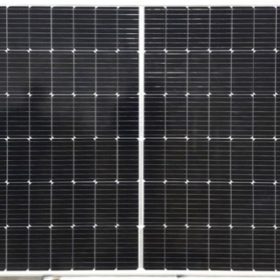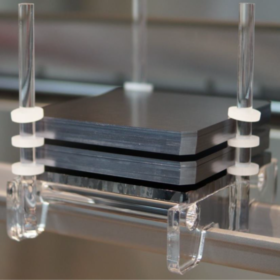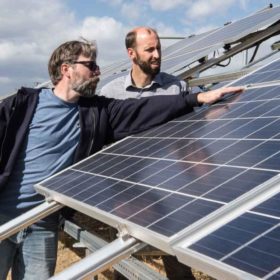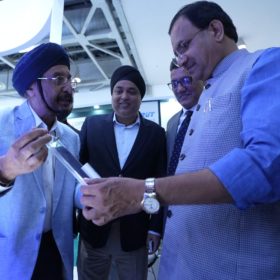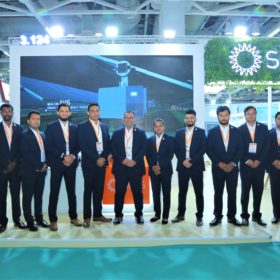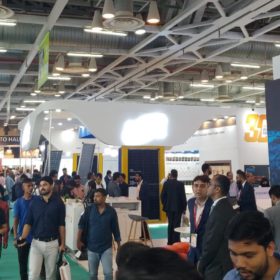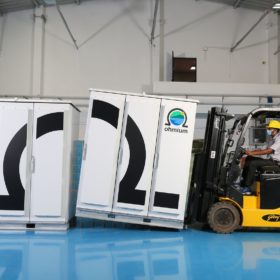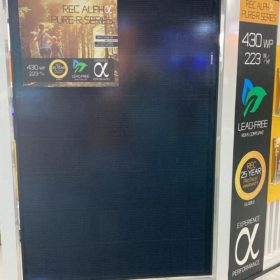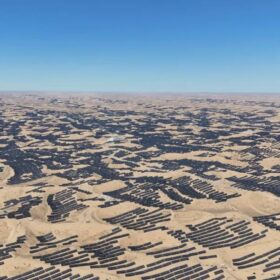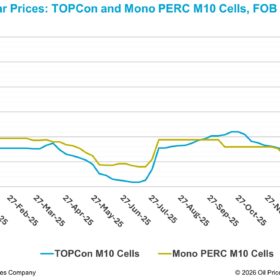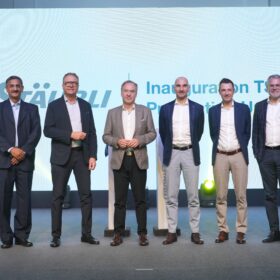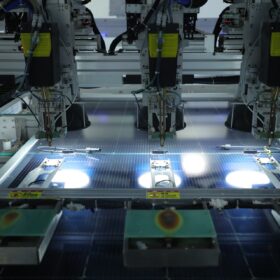Waaree Energies raises $122.4 million to expand solar manufacturing
The Indian solar manufacturer has raised INR 1,000 crore ($122.4 million) from various private investors to support its module capacity expansion to 9 GW and new cell line of 5.4 GW.
NeoSol unveils 550 W mono PERC module
The Indian solar manufacturer has unveiled Black Pearls series mono PERC modules in power outputs ranging from 535 W to 550 W, with power conversion efficiency between 20.7% and 21.33%.
OGO Energy aims 1 GWh/year lithium battery capacity by Dec. 2023
The Indian startup plans to expand its lithium battery manufacturing capacity to 1 GWh by December next year, from the currently under-construction 100 MWh.
New production process could double wafer throughput to up to 20,000 per hour
Scientists from Germany’s Fraunhofer ISE – together with a consortium of plant manufacturers, metrology companies, and research institutions – have developed a new production line concept for high-efficiency silicon cells, with a throughput of 15,000 to 20,000 wafers per hour – roughly double the usual amount.
How long do rooftop residential solar panels last?
Multiple factors affect the productive lifespan of a residential solar panel. In the first part of this series, we look at the solar panels themselves.
Premier Energies launches India’s first M10 bifacial solar cell
Premier Energies has become the nation’s first solar manufacturer to launch a bifacial monocrystalline silicon PERC (passivated emitter rear contact) solar cell based on the 182×182 mm2 format. The cell boasts an efficiency of up to 23.2%.
Solis eyes growth in utility-scale solar segment
The Chinese inverter major has showcased its 255K-Plus three-phase inverter for utility-scale solar applications in India. The new inverter is compatible with 500+ W bifacial modules.
Renewable Energy India Expo 2022: Key takeaways
This past week saw the Renewable Energy India Expo come to Greater Noida, on the outskirts of New Delhi, for its 15th edition. pv magazine spent three days navigating the packed halls of the exhibition and conference, and has compiled these takeaways.
Ohmium, Amp Energy collaborate on 400 MW of green hydrogen
Renewables developer Amp Energy India will deploy Ohmium’s proton exchange membrane (PEM) electrolyzers for mid-scale commercial and industrial projects with an individual capacity of 25 MW or smaller.
REC unveils all-black heterojunction solar panel for rooftops
At Renewable Energy India Expo 2022, Norwegian solar panel specialist REC has unveiled the Alpha Pure-R all-black heterojunction panel delivering a power output of up to 430 W. The panel measures less than 2 square meters in size and can generate 223 watts/m², which makes it ideal for residential rooftops.
